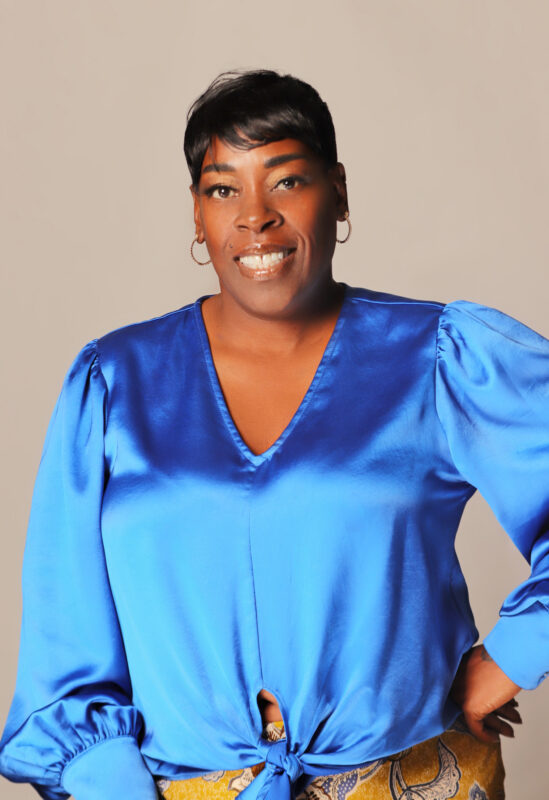By: Andie Ford, Lauren Olsen, and Blake Granata
In the expanse of Louisiana’s correctional system, the experience of being a woman in prison is fraught with unique challenges and injustices. Ivy Mathis provides and helps one gain a better understanding of the injustices between men’s and women’s prisons. Delving into the struggles faced by women in Louisiana prisons, Ivy Mathis, a re-entry specialist and formerly incarcerated individual in the Louisiana state penitentiary system, spoke on the unfairness in the system, shedding light on the disparities faced by women both in and out of the criminal justice system.
Mathis began by addressing how criminal sentencing for men and women differ within Louisiana. She stated, “I strongly know that women here are sentenced harsher and longer than men.” As indicated in a 2022 study done by the Death Penalty Information Center, Mathis’s statement is verified through the statistic that “Louisiana prosecutors were more than five times as likely to seek the death penalty, and juries more than five times as likely to impose it, in cases involving a Black male offender and a white female victim than in crimes in which both the alleged offender and the victim were Black.” Women, particularly those of African American origin are treated unfairly within the state’s criminal justice system. The fact that women have a higher rate of death penalty convictions than men support the ways in which Louisiana’s correctional systems are unjust.

Ivy Mathis, the founder of Successful Imperfections and an advocate for VOTE (Voice of the Experienced) “Photo curtesy of Ivy Mathis”
Mentioned by the Incarceration Trends in Louisiana, the incarcerated women in Louisiana account for almost half of all women behind bars in the United States. This is due in part to Southern beliefs that women are second class citizens and do not deserve the same rights or equalities as men. The majority of harsh sentencing for women occurs in rural counties in the state who have deep seated gender racism and want to keep women down in society.
In addition to these gender issues within the criminal justice system, there is also a large divide between the opportunities found within men and women’s prisons. Studies have shown that women suffer from PTSD at a rate of 40% higher than men within prison, but men’s prisons have more mental health opportunities than women’s prisons, especially within the state of Louisiana. The mental health of women prisoners is compounded by the fact that they receive far less vocational and educational opportunities compared to men, which adds to their stress of how they can reenter society in the future.
For instance, the Angola Prison in St. Francisville, Louisiana, offers an annual prison rodeo where male inmates can participate in the events and sell different items to the public, while women are brought in to compete as riders in the women’s barrel racing event. Stated by Mathis, the artistic opportunities that women have in the prison system are extremely limited. “Women are restricted to canvas and yarn, women are crocheting,” [The women’s craft program] does not have the tools, they don’t have the workspace to even do craft in, [the men] have warehouses and big rooms to use blow torches, knives, whatever they have, the women have canvas and yarn and is made in their dorms.” For certain crafts that only use yarn and beads and sell at a far less amount than the items that men can sell that include metal and leathers. Because of this, women feel that they are less than men, which continues the cycle of gender racism in the system and in the state.
Like hobby craft, many of “these programs start with the male facilities versus the women facilities,” says Mathis. In which she poses a question that if “Men are looked as the more aggressive gender, then why can’t women have the tools or the same opportunity?” If women had the chance to engage in similar crafts as the men and other programs, they might feel empowered to pursue a similar trade when they are released which could offer them a better chance at economic and social freedom.
To ensure a fair distribution of assets, including supplies, equipment, and workspace, between the male and female hobby craft programs, there needs to be equitable allocation of resources. Also, they should be able to provide incarcerated women with adequate training and support through programs to bring awareness to this issue. This can empower them to develop their skills.
This piece is part of an on-going series from Professor Betsy Weiss’s class, “Punishment and Redemption in the Prison Industrial Complex,” which is offered through Tulane University’s School of Liberal Arts Young Public Scholars (YPS) Program, a pre-college summer program designed specifically for the emerging social justice advocate.
 NOLAbeings Multimedia artist Claire Bangser created NOLAbeings as a portrait-based story project that marries...
NOLAbeings Multimedia artist Claire Bangser created NOLAbeings as a portrait-based story project that marries...  Voodoo in New Orleans: Reviving history: New Orleans fortune telling This article takes a deep dive into the history of Voodoo in New Orleans, its hybridization with Catholicism, and its present-day place in the city's culture. The author visits fortune-tellers in the French Quarter, using their guidance as a tool for introspection rather than a deterministic predictor of the future. Through her experiences in New Orleans, the author feels a mystical connection to both the past and the future.
Voodoo in New Orleans: Reviving history: New Orleans fortune telling This article takes a deep dive into the history of Voodoo in New Orleans, its hybridization with Catholicism, and its present-day place in the city's culture. The author visits fortune-tellers in the French Quarter, using their guidance as a tool for introspection rather than a deterministic predictor of the future. Through her experiences in New Orleans, the author feels a mystical connection to both the past and the future. 